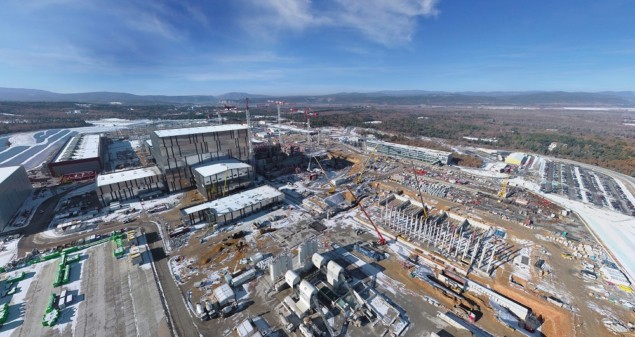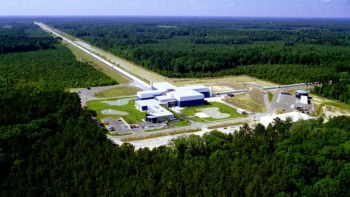
The US Department of Energy (DOE) has emerged as the biggest winner among agencies that fund science in the 2018 US budget. Despite not being finalized until almost six months into the financial year, which began on 1 October, the 2018 budget was passed by Congress late last week and signed by US president Donald Trump on 23 March.
In total, the US government will spend $176.8bn on R&D in the current financial year – an increase of 12.8% over last year’s figure. Funding for basic and applied research, meanwhile, will gain an extra 10.7% – its largest yearly increase since 2009.
[The budget increase] would go a long way to make sure our country remains a leader in scientific research and innovation
Within the DOE, the Advanced Research Projects Agency-Energy, which was created in 2009 to fund high-risk, high-reward research, will receive $353m – a 15% increase – rather than elimination as proposed in Trump’s budget request. The US contribution to the ITER fusion reactor that is currently being built in Cadarache, France, will almost double to $122m while every research programme in the department’s Office of Science will receive at least 10% more than last year’s budget. On top of that the Argonne National Laboratory’s Advanced Photon Source and Oak Ridge National Laboratory’s Spallation Neutron Source both receive sufficient funding to carry out long-planned upgrades.
‘Gratifying to see’
NASA fares equally well. Its $20.7bn budget represents $1.1bn more than in 2017. Trump’s 2018 budget request zeroed funding for the Wide-Field Infrared Survey Telescope (WFIRST) space mission, which is set to launch in the mid-2020s, as well as NASA’s Earth-science programme. In the 2018 budget, funding for WFIRST has been restored at $150m with NASA receiving $6.2bn for its science programme – a 7.9% increase. Funding for Earth science, meanwhile, remains unchanged at $1.9bn.
US scientists battle with Trump administration
While the National Science Foundation only sees a 3.9% increase in its budget over 2017 it is a significant boost from the 11% decrease proposed by the Trump administration. And the Environmental Protection Agency, which was targeted by the administration for a reduction of 36% will receive $8.1bn – the same level as in 2017.
The budget has been met with relief from the US scientific community. “It was gratifying to see significant congressional support for funding that will enable greater scientific understanding, technological innovation, STEM education, US competitiveness and security, and ultimately, improvements in the human condition,” the American Physical Society commented in a statement. Illinois Democratic Representative Bill Foster, who has a PhD in physics, meanwhile, noted that the increase “would go a long way to make sure our country remains a leader in scientific research and innovation.”



